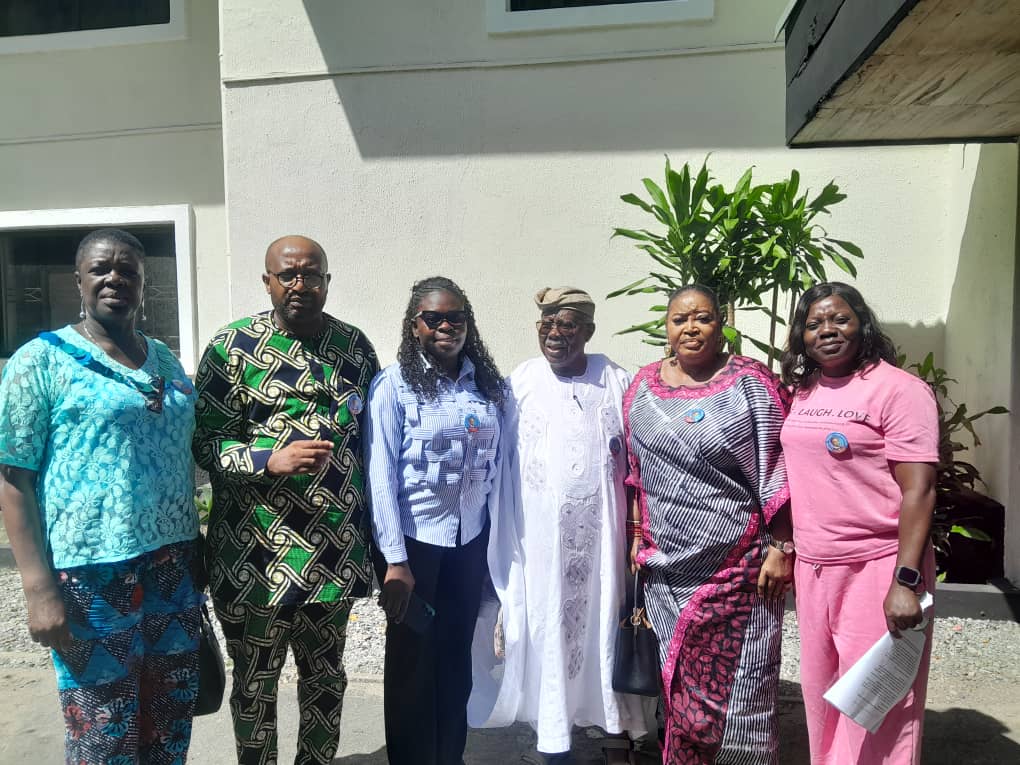…Herbert Macaulay shouldn’t have been lumped up with drug barons, ex-convicts, murderers
…Says he deserved more than clemency
By Dapo Akinrefon
The Herbert Macaulay family of Lagos, on Thursday, broke its silence over the pardon granted by President Bola Tinubu to their patriarch saying the clemench should not have been lumped up with drug barons, ex-convicts and murderers.
The family also urged the Federal Government to restore the legacy of the first nationalist who was unjustly convicted for his political activism in the country.
The family, led by former Deputy National Chairman of the People’s Democratic Party, PDP, Chief Olabode George, who is a great grand nephew of the nationalist urged President Tinubu to immortalise Herbert Macaulay rather than a granting him a presidential pardon.
President Tinubu had recently gave Presidential pardon to 175 ex-convicts in which Macaulay was included as a prerogative of mercy.
The PDP leader, who addressed newsmen at his Ikoyi residence, urged the Federal Government to rebuild Macaulay’s house at Marina which was demolished by colonists to build the General Post Office Building on Marina.
Members of Macaulay family present at the press conference included, Erelu Adeola Macaulay, Mr. Lanre Oshodi, Ms. Mayokun Thomas, Miss Kofoworola Macaulay, Miss Adeyinka Macaulay, Mr. Ayo Ogunlana and Miss Turi Akerele, who are all fourth and fifth generation descendants of the sage, said that his legacy should not be allowed to be erase.
George noted that the late father of Nigeria nationalism who founded the first political party in Nigeria1923, Nigerian National Democratic Party (NNDP), deserved more than clemency but appropriate honour.
His words: “In 1908, Macaulay’s growing criticism of British policies found a public platform through his involvement in the Lagos Daily News, a paper he co-founded to serve as the voice of the voiceless. The newspaper became his weapon — a weapon of truth and advocacy. He used it to expose corruption, racial discrimination, and economic exploitation.
“In 1912, he took up the cause of the Eleko of Lagos, Oba Eshugbayi Eleko, against the colonial government in what became one of the defining political struggles of the time. The Eleko, as the spiritual and traditional leader of Lagos, had been stripped of authority and humiliated by the colonial administration. Macaulay defended the Eleko — not only in Lagos but even before the Privy Council in London. He won that case in 1928 — a moral and political victory that inspired generations.
“By 1898, he resigned from government service, choosing instead to become a private surveyor — and a relentless critic of colonial misrule. Through his writings, his speeches, and his activism, he began to awaken a sleeping people.
“He witnessed how the resources of Nigeria were siphoned off to enrich the metropole, how local voices were silenced, and how the dignity of Africans was routinely trampled upon. His conscience rebelled.”
“Herbert Macaulay understood something fundamental — that political freedom is meaningless without social justice. He spoke up for the working class, the market women, the artisans, and the dispossessed.
“He was the bridge between the educated elite and the ordinary Nigerian. He believed that leadership must not be about privilege, but about purpose. In his time, he took risks — he was imprisoned twice by the colonial government, yet he never wavered.
“He transformed politics from the parlor rooms of colonial officials into the streets and markets of Lagos Island. He made politics a people’s affair. And for that, he earned the title that endures to this day — the Father of Nigerian Nationalism.
“As the nationalist movement matured, Macaulay’s vision found new life through his alliance with Dr. Nnamdi Azikiwe, a younger, fiery journalist and political thinker. Together, they co-founded the National Council of Nigeria and the Cameroons (NCNC) in 1944 — a movement that would later become the dominant nationalist party leading Nigeria toward independence.
“In his time, Macaulay was vilified by the colonial press, labeled a troublemaker, even imprisoned. But history has vindicated him. Integrity, after all, is not about popularity — it is about principle.
“Herbert Macaulay did not live to see independence, but he built the road toward it. We, who are beneficiaries of his struggle, have a duty to continue building — to expand freedom beyond politics into economics, education, and social justice.
“His dream was of a Nigeria where every citizen — regardless of tribe, creed, or class — could stand tall with dignity. He envisioned a country where government is not a master, but a servant of the people.
“He died in 1946, in Kano, while on a political campaign for national unity — a patriot to his final breath.
“Today, as we grapple with the challenges of nation-building — insecurity, inequality, and corruption — we must draw from his example. We must build bridges, not walls; institutions, not empires.
“As members of the family, we request he deserves more than just be lumped up with drug barons, ex-convicts and murderers.
“It is our direct request to Mr President that you are to remodel his house (which was demolished by colonialists), where you have the current General Post office at Marina. Where it will be a model for all Nigerians like a museum.
The post Family faults inclusion of Herbert Macaulay in presidential pardon list appeared first on Vanguard News.

